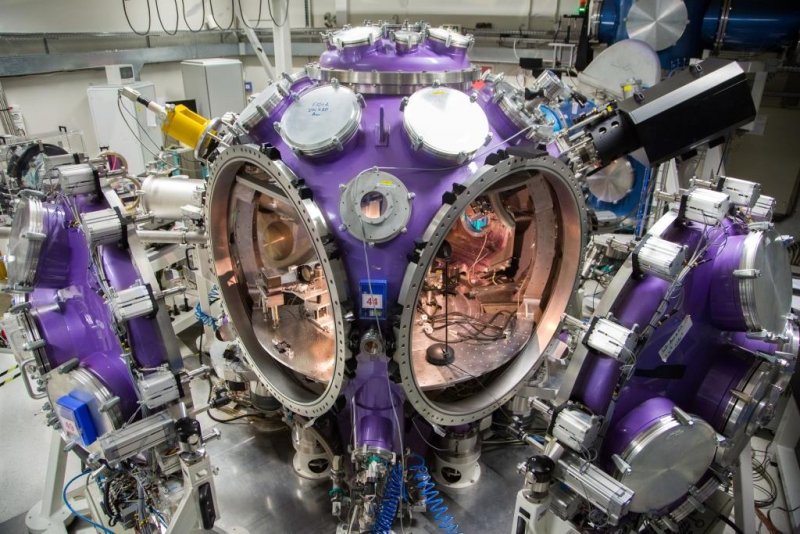Postdoctoral Research Position in high energy density plasma physics

Properties Of N-H-C-O Mixtures relevant for Planets and Exoplanets Interior
Advertiser: Laboratoire d’Utilisation de Lasers Intenses, CNRS, Ecole Polytechnique ,CEA, UPMC
Deadline: June 16 th 2017
Salary: According to CNRS regulations
Contact: Dr. Ravasio A. alessandra.ravasio@polytechnique.fr tel: +33 (0)1 69 33 53 58
Project description : The PHYDEL group at the LULI laboratory is offering a postdoctoral position assessing the behaviour of C-H-N-O mixtures under high pressures by combining dynamic and static compression techniques.
The LULI laboratory (Laboratoire d’Utilisation de Lasers Intenses) is an international academic large large-scale laser facility offering to the whole community access to the most energetic laser systems with durations of few nanoseconds. This configuration allows the study of laser-plasma interaction and its applications in the high-energy-density regime (HDE). One of the central research in this fiels concerns planetary physics, where important incertitudes on the properties of planet constituting materials at conditions of planetary mantles and cores (few Mbar and few 1000 K) leaves various lacunae in planetary models. This also affects our understanding on the solar system history, formation and evolution. While recent achievements have improved description of terrestrial-like and
Jupiter-like plants, icy giant planets remain poorly modelled mainly because of the lack of data on equations of state, chemical and transport properties of water and ice (H2O/CH4/NH3 system) at planetary interiors conditions. This causes significant limitations in the understanding of our icy giant planets, Uranus and Neptune, in which ice comprises two thirds of their mass. Lack of precise information on transport properties of the ice mixture is in particular casting serious issues in explaining Uranus and Neptune’s magnetic fields. Similarly, the simplified approach adopted in the ice characterisation fails in describing Uranus’ low luminosity. Resolving this situation is even more urgent today as the discovery of exoplanets is incredibly active.
In this project we will combine laser drive shock compression with diamond anvil cell (DAC) to study the behaviour of N-H-C-O mixtures on a wide region of the high pressure/ high temperature phase diagram. We will use optical and X-rays diagnostics. The successful candidate will design and predict new experiments, design improved diagnostics and analyse the experimental data. He/She is expected to collaborate with LULI physicists, experimentalists, target fabrication, numerical methods experts, as well as with scientists at other french or international laboratories and universities.
The postdoctoral fellow position is open for two years. He/She will be based in LULI and will participate in the other experimental works related to this project that will be performed on other laser facilities (GEKKO XII in Japan, LCLS in US, SACLA in Japan, ESRF, etc..)
Qualifications:
- PhD in physics or a related field
- Demonstrated experience in high pressure physic experiments, either DAC or dynamic techniques.
- Knowledge in x-ray instrumentation and x-ray techniques (XRD, XAS ) would be an asset.
- Demonstrated ability to perform independent research, find innovative solutions and produce significant accomplishments to scientific and technical problems.
